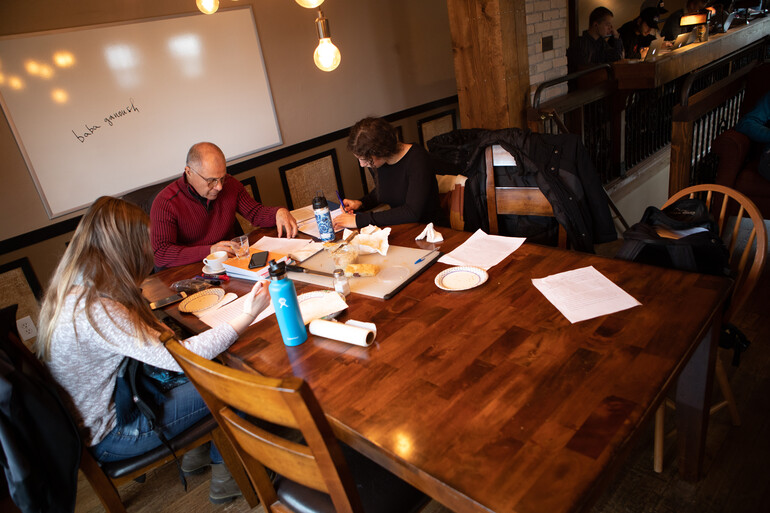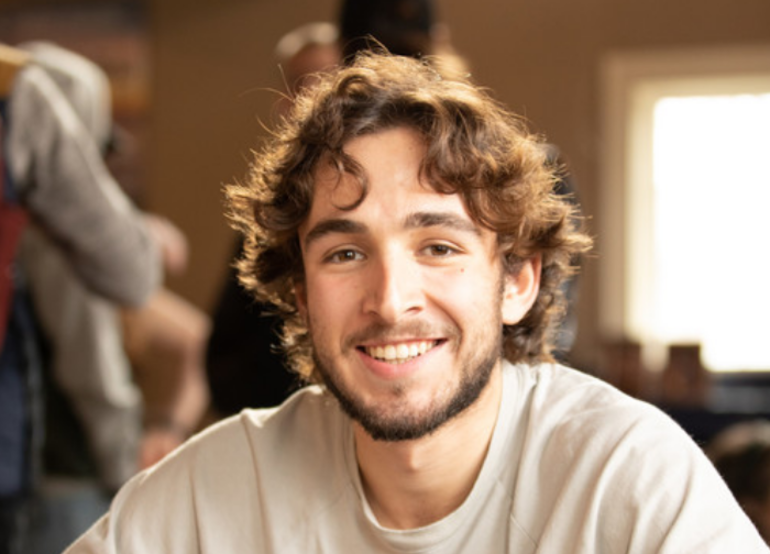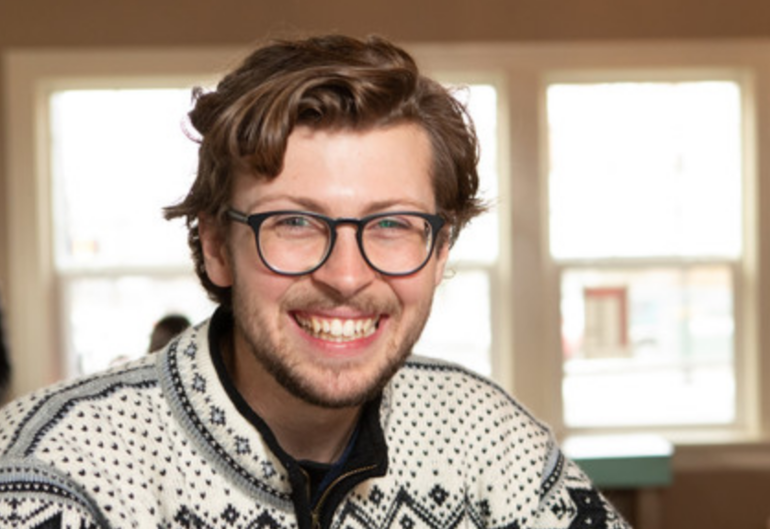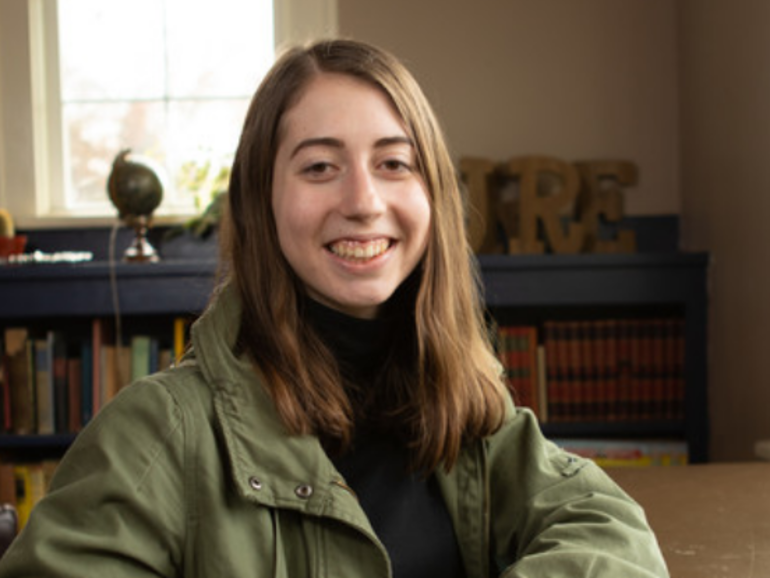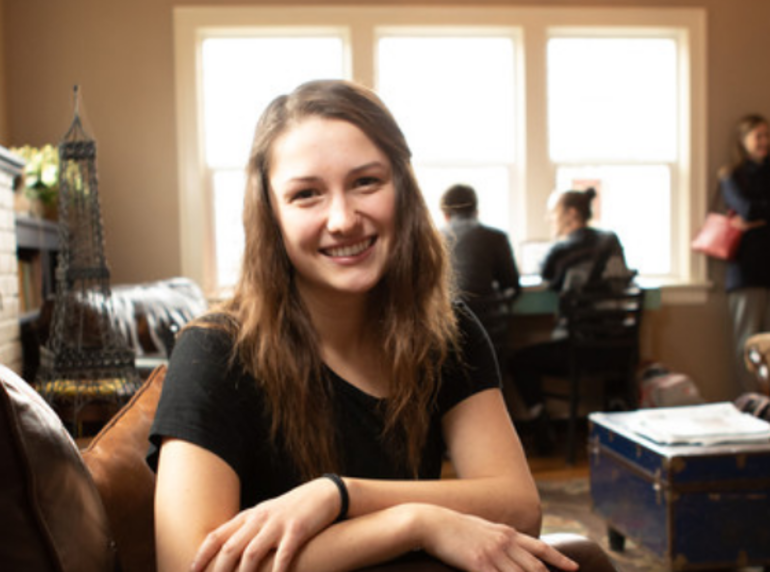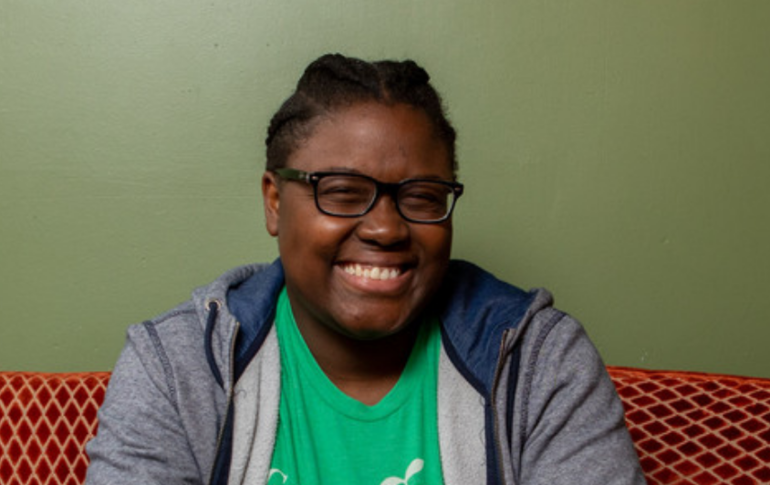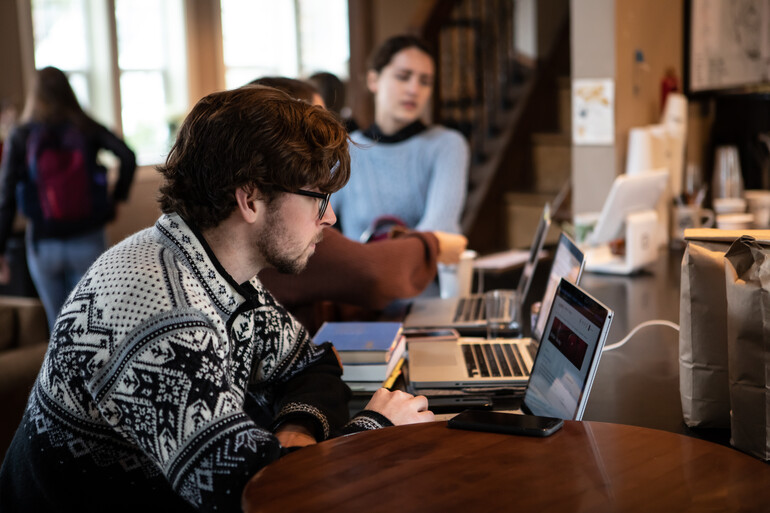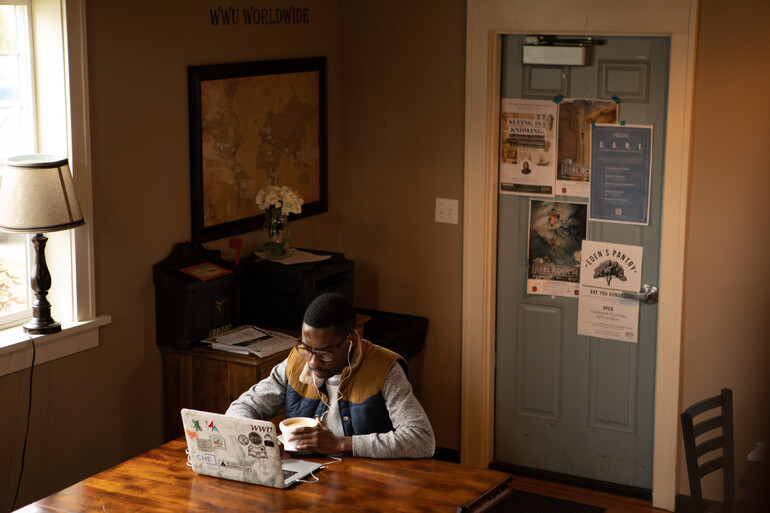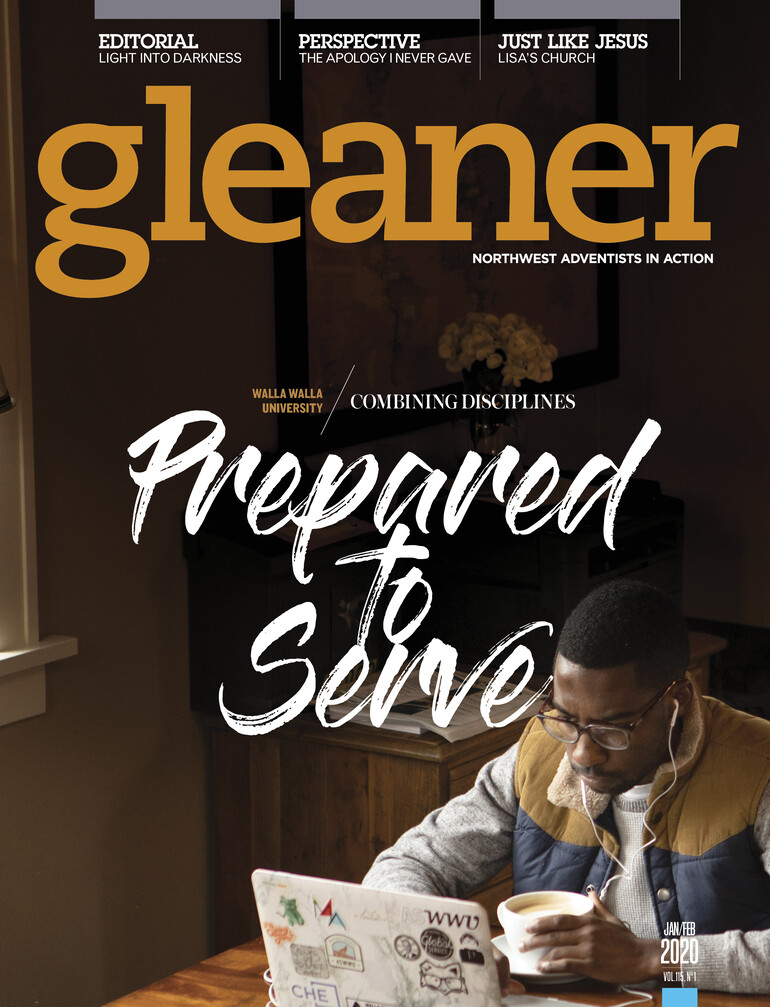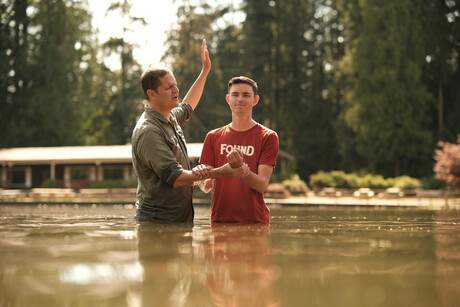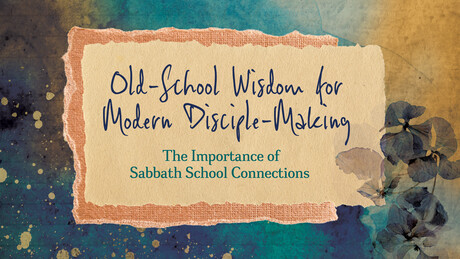Art and science are often considered polar opposites, and students can feel the pull to choose one or the other. Engineering or English? Computer science or art? Biology or music?
But is a breaching whale art or science? Is learning to communicate well art or science? Is helping someone heal from depression art or science?
Employers today are increasingly seeking graduates with skill sets that blend the best of both worlds — the ability to interpret data and draw conclusions, to think and communicate creatively, to reason effectively, to work with others to solve problems, to make informed decisions.
Walla Walla University seeks to foster the unique gifts of every individual within its Christian community of faith and discovery. Sometimes that means bringing together unique and varied skills in ways that translate academics into responsible citizenship, generous service and a deep respect for God and His creation.
Meet five Walla Walla University students who are finding creative ways to harmonize their passion for areas of study that are stronger together.
Laura Egolf
Major: Biology
Minors: Spanish, chemistry, music
Hometown: Abbotsford, British Columbia, Canada
The question of studying science or humanities is one WWU senior Laura Egolf has considered for some time. “It’s funny, in high school my brother was always the science one, and I was more into humanities. I really liked to write, and people always thought I would go into English,” Egolf says. “As I got a little older, I got more into science. That is what I ultimately went into. Now music and literature are more for relaxing.”
Deciding to add chemistry and Spanish minors to her biology major was relatively easy for Egolf. She is preparing for medical school and is required to study chemistry as part of her program. “I just needed to take one extra chemistry class to get the minor, and I figured why not?” With family members in Argentina, spending a year studying Spanish at Universidad Adventista del Plata with the Adventist Colleges Abroad program was also an easy choice.
“Music was the most unplanned minor,” says Egolf, who didn’t participate in any musical ensembles her freshman year. “I really missed it, so my sophomore year I joined choir and ended up in I Cantori. Then someone told me the vocal department needed a pianist to accompany lessons. Then one of my teachers said, ‘You should do a minor.’ I really appreciate and respect the professor here, and I was like, why not? It’s been a little hectic trying to get everything in, but I’m happy. It’s been a good balance for all my science classes to have this whole other music community.”
An expanded campus community is one perk of studying both the sciences and the arts at WWU. Egolf interacts with students and professors from a variety of areas on campus and as a result enjoys a wide social circle and support system.
During her sophomore year Egolf traveled with I Cantori on tour through Georgia, Florida and North Carolina. One of her best memories from that trip was, ironically, singing in an empty church. “We weren’t singing to anyone. It was just this beautiful piece. You could hear an echo through the church. It was something that makes you want to cry. There was just beauty. It was definitely a very spiritual and memorable experience. There’s something about music and sharing it that I don’t really find in anything else,” Egolf says.
“Science really challenges me intellectually. I enjoy figuring out how things work, and I like the problem solving. Whereas with music there is the creative aspect. You get to make something beautiful and share it with people. Especially in I Cantori we sing for church a lot, and that’s been a really good way to give back. I think of the music as a gift. I feel like these are two aspects of me that are both important to me,” she says.
Carston Haffner
Major: Biology
Minors: History, Spanish
Hometown: Portland, Oregon
These days you’re likely to find WWU senior Carston Haffner studying in the Atlas cafe, leading out in student government or birding in the Blue Mountains. “I love to be outside,” Haffner says. “I like to ski. I like to hike. I like to climb. I like to bird, and I like to find new plants that I haven’t seen before.”
As a native to the Pacific Northwest, Haffner grew up hiking in the Columbia River Gorge. “I grew up enjoying the outdoors, but I didn’t really appreciate the depth of what there is in nature and how it works until I was starting college. Getting a better understanding of that has instilled in me the desire to help protect what nature there is.”
Three years ago, as a sophomore, Haffner was winging his way to Sagunto, Spain, for a year of study with the Adventist Colleges Abroad program. He was eager to learn a new language and experience a new culture. “The way we think, behave and live hinges on culture and language. I was interested in learning a different language to try to get closer to a different culture,” he says.
With that new language on his resume and a new understanding of the world, Haffner returned to WWU to dive deeper into his major field of study — biology. After his experience in Spain exploring how different world communities interact, it was something of a natural next step to begin investigating how different organisms relate to one another in the biological realm. While he’s open to exploring a variety of career paths, Haffner is interested in learning how he can combine his three areas of study — history, Spanish and biology — through ecology or other disciplines related to the environment.
“I’m curious about how humans impact our environment. How do we mitigate that?” Haffner says. “A historical perspective is not really one that’s at the forefront of most scientific questioning. I’m really interested in the human impact on ecosystems. That’s not a static thing; it has been increasing and changing over time. So having that historical perspective is something that’s important.”
Haffner counts many additional benefits of combining a study of the arts and sciences, including developing the ability to write well both to express opinion and to present scientific research data. “Every course of study has their own way of doing things and methodologies for asking and answering questions. In science we have a very definite way of doing that; in history it’s a little different,” he says. “Being able to write in those terms is helpful no matter what field you end up in.”
“The biggest impact for me during college has been being hopeful about the future because there are a lot of us out there who are trying to figure out the world and how to do good by it,” Haffner says. “What I like to do outside of class relates to what I do inside of class, which is a good and happy place to be.”
Madison Boskind
Major: Biochemistry
Minor: French
Hometown: Gresham, Oregon
Somewhere along the line junior Madison Boskind developed a whole lot of grace and charm. Her perfectly accented “bonjour, comment ça va?” can take you to the Champs-Élysées and savoring an imaginary French baguette in an instant. Certainly her best qualities are also inspired by her parents — both medical professionals — who have kindled her dream to become a physician. Her calm nature and passion for life are the perfect ingredients for a career that will capture the best of science and the human experience.
“I’m leaning toward neurology,” she says. “I’ve read a ton of books on psychology and the brain itself, and it has always really interested me. I want to learn more about the brain and help people with disorders, such as seizure and stroke patients.”
To that end, Boskind is majoring in biochemistry. “I wanted to do a mixture of chemistry and biology because I wanted to apply both subjects to the body, which is what biochemistry does.”
One thing that stands out to Boskind about her experience at Walla Walla University is the teachers and how much they care. “I remember last year I would go to the office of my organic chemistry teacher, Dr. Brannaka, and ask him about problems. He would just watch me as I sat there staring at his whiteboard trying to figure out the problem. He would give us hints, but he would say, ‘I’m not going to tell you the answer. I want you to figure it out for yourself. I want you to struggle.’ He spent so much time just trying to help us understand the material, and that really helped to improve my experience in his class and my grade as well.”
It is in that struggle that Boskind has found a small community on campus. “The people are what make this place and just how welcoming a lot of them are,” she says. “Especially for science classes, we struggle together, and we’ve become this little unit moving from class to class, trying to understand the material and survive.”
She has discovered that a good counterbalance to that science-based cognitive struggle is her minor in French. “For me, it’s a huge break because all my classes are very math and science oriented. Studying French allows me to be more creative and use the other side of my brain. It helps you see the bigger picture in life and become a more well-rounded person.”
Boskind also works to find balance through her involvement in another small group that meets every other week to eat dinner together, study the Bible and enjoy community. She works at the campus rock climbing wall in the gym, is a teacher’s assistant for general chemistry, is a member of the Chemistry Club, and likes to get outside and go hiking on most weekends.
From Maddy Boskind one gets the distinct impression she could do anything she wants to do. All in all she is just the kind of French-speaking, rock-climbing, Bible-based, grace-filled person you might hope to encounter the next time you’re in need of a good doctor.
Marly Narcisse
Major: Mechanical engineering, Global Humanitarian Engineering certificate
Minor: Religion
Hometown: Fairfax, Virginia
Marly Narcisse fell in love with engineering during a field trip when her community college anatomy and physiology class visited the National Institutes of Health in Bethesda, Maryland.
“There were different tables for dentists and nurses and doctors, but honestly I don’t remember anybody else. I just remember a lady at one table who was a biomedical engineer. I went home and searched engineering and then that was my love,” Narcisse says.
Narcisse was raised as a Seventh-day Adventist in Haiti and came to the United States after the 2010 earthquake. One day after that field trip, from her new home in Virginia, she Googled “Seventh-day Adventist engineering school” and “Walla Walla University came up as No. 1,” she says.
“I really wanted the spiritual life and to be where people would understand me. I’m a very outdoorsy person, and I saw ASWWU — the Associated Students of Walla Walla University — and I was like, ‘You get me!’” she says.
Narcisse’s primary career goal is to be a missionary. “I do love engineering, but I’ve always wanted to be a missionary. The religion classes I’m taking are more for me, so that I can use the engineering for others. I always thought in order to be a missionary I had to be a doctor or a teacher or something like that. I discovered organizations like Engineers Without Borders, and I realized that instead of just being a missionary, I can be a humanitarian.”
She is specifically looking to use her background in engineering and religion to interact with farmers around the world in meaningful ways and to help them develop sustainable methods for farming. “A lot of engineers are working to provide people with electricity and things like that,” she says, “but I feel like agriculture is also very important.”
Narcisse is discovering many benefits of combining STEM (science, technlogy, engineering and math) studies with studies in the humanities. “I’m logical, and I like things like that. And then the other side helps me step outside and just do some thinking. When you learn about religion, it can help you understand why someone would think a certain way or do a certain thing,” she says.
What stands out most to Narcisse so far about her time at WWU are the teachers and the friends she has made. “I don't know if it’s because it’s a small school, but the teachers really do care, and they make sure that you’re understanding what they want to teach you. I like that a lot.” Her time on the cross-country team has given her a built-in set of friends. “We came to school a month and a half early and it was just us, so we had time to bond. We had game nights and things like that. There are 10 of us. To me that’s the perfect group.”
With a diverse skill set that includes four languages (French, Creole, Spanish and English), Narcisse is poised for a successful international career, but her goals are quite simple: “I just need a job where I can do good and help people,” she says.
Kyle Lambert
Major: Mechanical engineering
Minors: Drama, mathematics
Hometown: Great Falls, Montana
It’s a beautiful thing when a high school teacher can say “I told you so” to one of their former students. But that’s giving away the end of this story.
Prior to second grade, Kyle Lambert wanted to be an astronaut. “Then when I was in second grade the space shuttle Columbia blew up,” Lambert says. “I heard about that, and I was like, you know what, I’ll help build these things instead.”
That was the beginning of Lambert’s fascination with engineering, and it has remained to this day. But when he was in high school at Mount Ellis Academy, teacher Leisel Rogers entered the picture with some fancy ideas about music and theater.
“Mrs. Rogers loved music and theater,” Lambert says. “And, of course, as a music teacher, she was trying to sell us on it all the time. I wasn’t really buying it. I told her that musicals are okay for some people, but I have no interest. She said, ‘Somebody you’ll change your mind and I’ll be able to say, “I told you so.”’”
During his senior year at Mount Ellis, Lambert got involved with a production of the play 12 Angry Men, and his response surprised him. “I loved it,” he says.
Now, as a senior at WWU, Lambert has taken that love of theater, blended it with his goal to be an engineer and thrown in a minor in mathematics for good measure. He started off running the lighting board for a handful of stage productions. He went on to take specialized classes in lighting design and has been the lighting designer for eight WWU productions. He even won the Lighting Design Award from the Kennedy Center American College Theater Festival for his work on the WWU production of A Wrinkle in Time. “Lighting design is my specific interest in theater, but overall my interest is in how it explores life and philosophy and ideas.”
Lambert has discovered his skills in engineering and theater influence each other. “You can approach lighting from a technical standpoint and from a creative, artistic standpoint. And now I think about engineering a little more from a design perspective. I think someone who can explore both areas gets a more complete picture of the world and life and how things work.”
As he gets ready to graduate in June 2020, Lambert can look back at college and see he hasn’t left much out. He was a student missionary dean and teacher for 18 months in Denmark. During that time he learned to speak Danish and to enjoy teaching.
“I always try to think about when I look back, what am I going to see? When I look back, am I going to see that I’ve gone where God was pointing me at the moment, or was He pointing me somewhere else and I ran in a different direction?" Lambert ponders. "Most of the time, I feel like I’ve hit the big things. There are some things that looking back it’s like, well nope, I didn’t quite hit that one. But you know He’s worked with it.”
He is considering career options in aerospace engineering and exploring graduate work in a climate-related field. He is also thinking about getting involved in community theater and mulling over the idea of going into deaning.
“During my time as a student missionary I really enjoyed the connections I made with the students — seeing how they grew, how they changed, where their interests were. I still talk with a number of my students. I want to know what they’re doing in life and where they’re going next. It’s really cool to see people change over time.”
And Rogers? “I ran into her two years after I got to Walla Walla when she was on campus for a choral festival," Lambert says. "I walked over and said to her, ‘You can say it now — “I told you so.”’”




